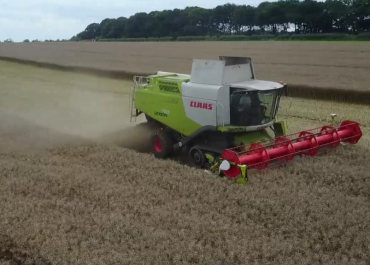Oilseed rape growers are grappling with continued challenges as only 21% of the rapeseed area was harvested by 25 July, with yields averaging a disappointing 3t/ha, according to the latest AHDB harvest report.
This progress lags significantly behind the same period last year when 68% of the crop had already been harvested. While the current figures are behind the five-year average of 37% completion, they do surpass the results from 2021 when a mere 9% of the OSR area had been cut.
Regionally, the South West and the West Midlands are leading the way, with 61% and 35% of their harvests complete, respectively, while the South East stands at 32%.
In contrast, Scotland, Wales, and the North East of England have either just started or have yet to commence harvesting operations.
Yields have been inconsistent, ranging from 1.0-4.9 t/ha, with an overall poor average of 3.0 t/ha. These subpar yields can be attributed to a combination of factors, including storm damage leading to substantial shedding, as well as pest and frost damage earlier in the season.
Notably, the East Midlands and Eastern region have reported widespread cabbage stem flea beetle damage, further impacting yields.
Amid these challenges, Bionature’s unique products offer a glimmer of hope for oilseed rape growers. Despite the generally underwhelming performance reported by farmers, Bionature’s innovative solutions continue to deliver record-breaking yields. These products effectively combat issues such as flea beetle damage, providing a lifeline for growers striving to overcome the obstacles that this year’s harvest has presented.
